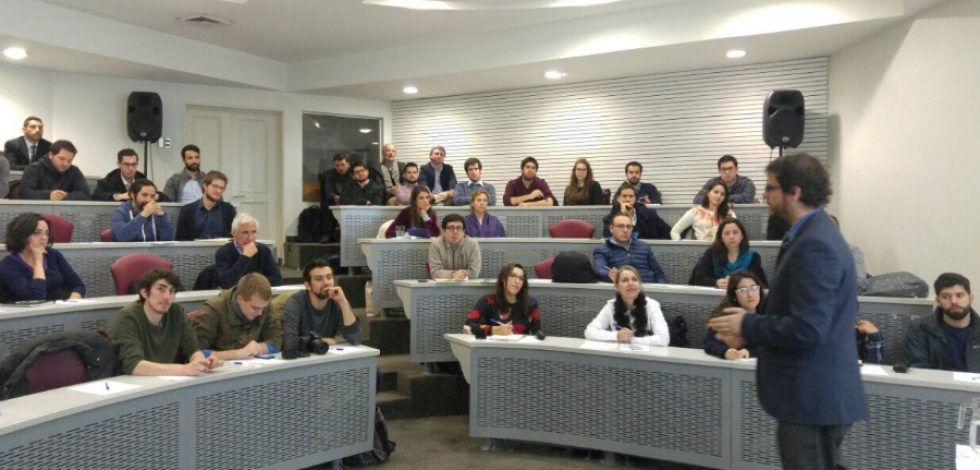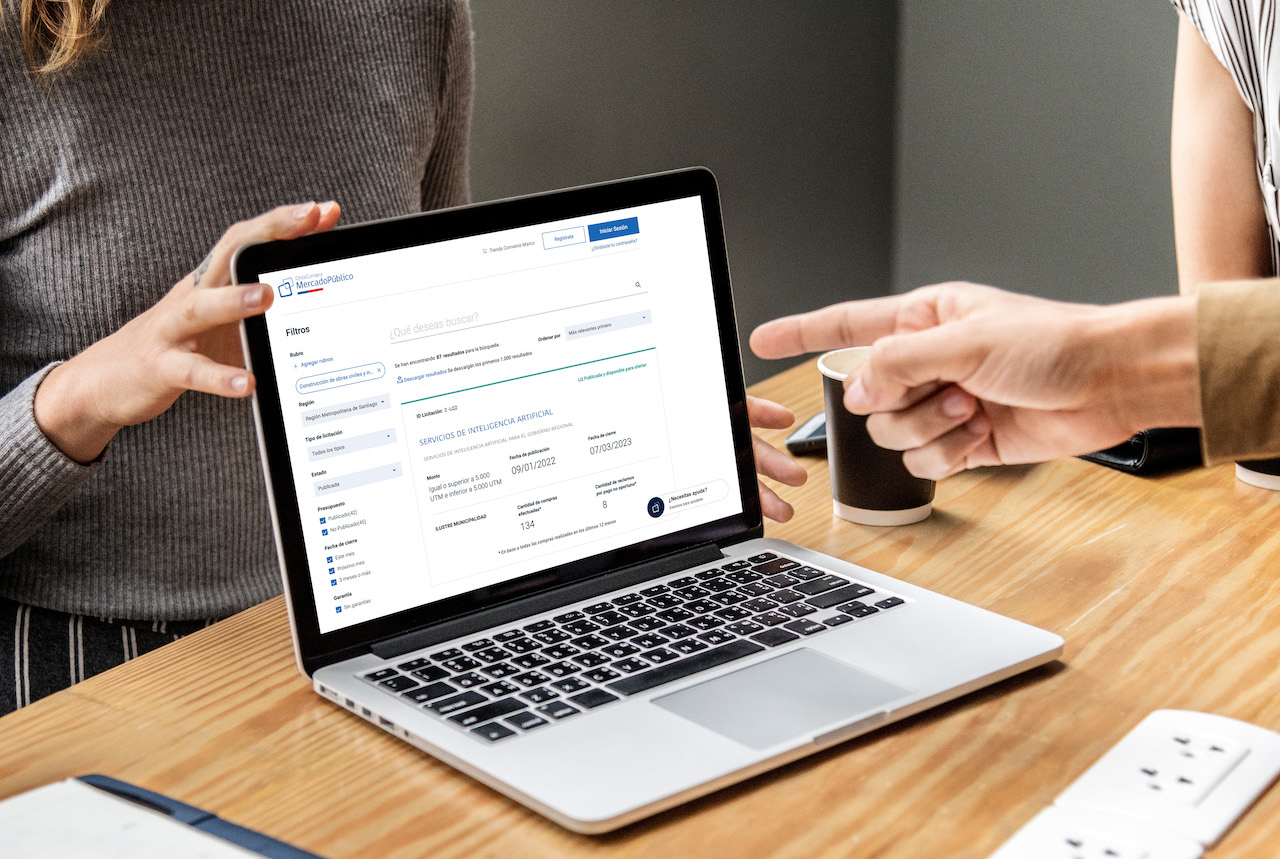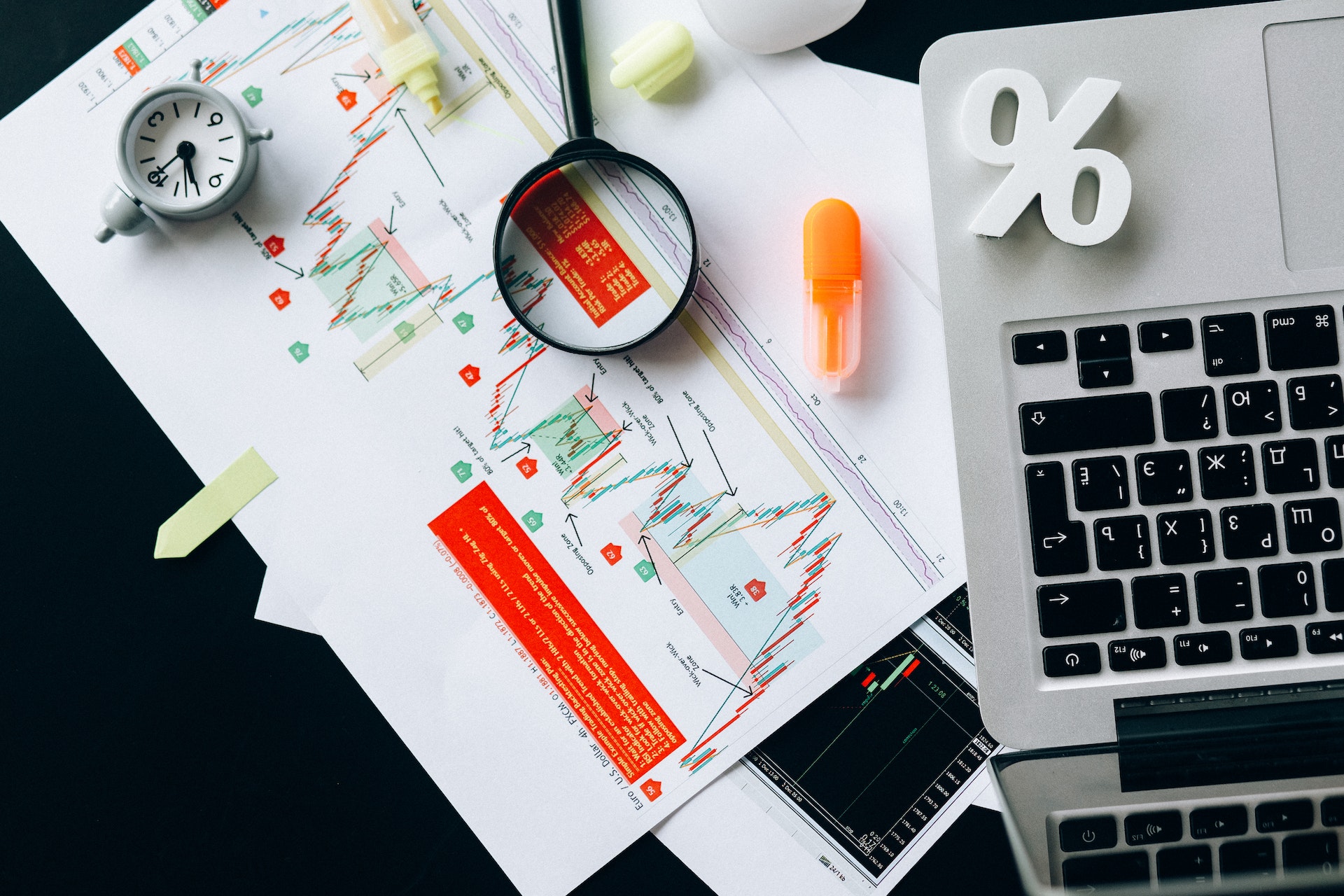
Can epidemic outbreaks, fires, robberies or dropouts be prevented? For Álvaro Bellolio, Research Director of GobLab UAI, it is possible, thanks to the study of large-scale data.

Big Data at the service of society
June 23, 2017
Can epidemic outbreaks, fires, robberies or dropouts be prevented? For Álvaro Bellolio, Research Director of GobLab UAI, it is possible, thanks to the study of large-scale data.
“Big Data is a computer program that analyzes large amounts of stored data, generating value for the information, because it delivers statistics and prediction models that allow for better decision-making,” said Bellolio during the Workshop “Data Analysis for Public Challenges” that started the activities of this public innovation lab of the School of Government of the UAI, which aims to contribute to the community through three main areas: research, teaching and applied projects.
For the professor, Big Data is essential for the public sector, even if this tool is relatively new, it is a trend that will grow in the coming years and it is important that there are people trained in this program that allows to describe, diagnose , predict and create simulated situations of the main needs of citizens.
The Civil Engineer from the Pontificia Universidad Católica and Master in Public Policy from the University of Chicago said that Big Data can help governments knowledge, for example, where social services offices are needed, how to lower the student drop-out rate , what measures take to improve public safety or prevent disasters such as fires.
“In the United States, the use of Big Data is used in both the public and private sectors. For example, Netflix uses it to recommend movies and U.S. firefighters have been able to detect which sectors are more prone to fires. In addition, it was fundamental in the last campaign of Obama, because they managed to classify people and motivate them to vote according to their tastes and even by who their neighbors were,” said Bellolio.
During the workshop, the professor of the School of Government did practical exercises so that attendees could understand how an action plan based on Big Data works and is executed. “You always have to define a specific goal that is achievable and measurable. To improve people’s quality of life, there must be actions that are based on clear tools that allow us to face and analyze people’s problems,” he said.
He also said that we had to be extremely careful and ethical with the information received since we have to consider what the people who are monitored feel: “we must have a fine balance to avoid privacy, security, freedom and transparency.”
For Bellolio, this Center, which is a pioneer in the use of Big Data in our country, can contribute to improving the effectiveness of government policies: “As Gob Lab UAI, we want to help people working in the public sphere to engage in analysis and execution of actions while we help them in the data process”.
At the end of the exhibition, the Director of the Gob Lab invited attendees to participate in the “Big Data for Public Policies” Diploma because he always said that while Big Data is a very useful tool, “the human decisions make the difference because they do the analysis of all this information and no computer can replace that ”.



